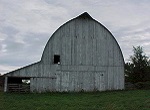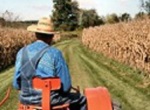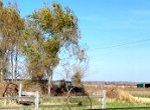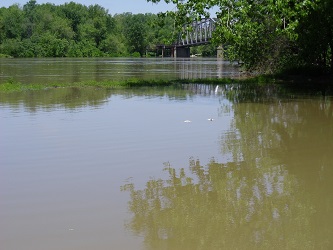Rural Community Development Builds Capacity
Last Updated: June 20, 2024
In many ways, rural community development is similar to capacity building in any community. But the particular challenges of adapting to economic change, and of providing education and social services where the population base is low, mean that this topic deserves its own page.
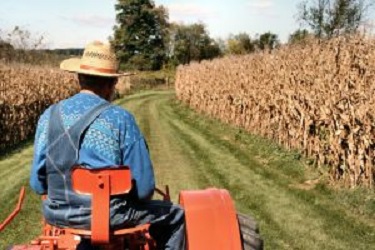
That phrase capacity building simply means increasing the ability of your people to work together as a community. As a whole, the community needs to know how to diagnose, address, and solve a problem, as well as how to take advantage of existing community assets and opportunities.
If you have lived both in the country and in the city, you realize that ways of interacting are slightly different in rural areas, including small towns. So you will need to pick and choose carefully which advice on community improvement you choose to take.
Capacity Building Training for Community Members
There is huge diversity in training needs among rural areas in the world. In the U.S. and other nations where mass communications with the rest of the country are readily available, and where education and democracy are strong, rural community development training isn't very different from community leadership training anywhere else.
The major difference would be in the degree of emphasis on various types of issues. Later on this page we'll list what we suspect would be the three most common subject matter areas in which community members need to gain some expertise.
But the tone of the training needs to be one that will be appealing to rural people. You can't take the same materials that would be used in a large city and expect the same response.
Change the tone and language to the way that rural people in your particular area speak. Make it friendly and folksy, and you'll communicate. The ideas need to be quite sophisticated, though.
Right now we think that rural community building needs to emphasize being positive about life, since there is plenty of discouragement to go around. Many perceptive rural people are discouraged about the future; see for example a site visitor's question about the future of a small southeastern rural town. We like the Be WUCA! approach of Frank and Kim Spillers, which they summarize as Welcome, Understand, Comfort, Appreciate. They have a book if you want to know more; their website seems to have disappeared at the moment.
If you are building capacity in a rural area in a developing country, where transportation and communication are challenging, you may have to bring people together in one place for a few days. While there is rapid growth of cell phone usage in areas fairly remote from major cities, it makes sense that if you are training people to work with other people, face to face communication will work best.
This has become especially challenging as the world is dealing with the coronavirus pandemic, but watch for opportunities for outdoor gatherings when and where the infection level is low.
Use people who grew up in the area as trainers, if possible. Too often internationally the community development expert has been someone from an international or regional organization, large non-governmental organization, or relief agency.
If transportation isn't a major issue, it's often better to space out the capacity building exercises at intervals of at least a week. This allows participants to notice their own environments and maybe even to practice some new skills they have learned in the training.
We want you to remain clear that rural community development is distinguished from other rural fields because of its emphasis on increasing human abilities and cooperation.
However, it's always useful to describe some of the typical community development problems that will be encountered in rural areas. We suggest three for your consideration.
Finding and Keeping a Sound Economic Base
Agriculture, cutting timber, or hunting and fishing used to provide quite an adequate economic base for rural communities. (Please make sure you understand the concept of an economic base before you continue.)
While some portion of the world's rural population is still nomadic, traveling from place to place in search of food and other necessities, that proportion is dwindling quickly. Mostly rural people are in settlements of some sort, or dispersed across a landscape with a few small towns scattered here and there.
So for people living relatively near one another, it's a continuing challenge to keep their agriculture or other traditional economic activity viable. Look at some of the challenges that require a high quality of rural community development interaction:
- Desertification (a natural and sometimes human-aided process of making a desert),
- Deforestation (harvesting of trees to such an extent that other plants and animals dependent on the forest can’t survive),
- Changes in the outside world's demand for a local product, or in the regulation of a local product in important markets
- Possible global climate change, but certain climate anomalies,
- Rising expectations of people who have tasted Coca-Cola and wonder what else is out there, especially now that they can see world culture on the village's cell phone,
- Extreme poverty and the need to solve that problem, and
- Lack of education, leading often to lack of sanitation and knowledge of how to prevent disease and epidemics.
If you happen to be reading this in a rural area of the U.S. or some other "developed" country, take a moment to be thankful that some of these problems don't apply to you.
However, in a developed economy, rural community development still requires a very nimble approach to earning a living. In these economies, typically technology both has increased the amount of global competition and reduced the amount of labor input necessary to produce the same amount of goods.
So in a time of transition from relying almost solely on agriculture to depending on agriculture for less than half of a community's income, for example, there are some very tough social issues about families' ability to change and to remain hopeful despite setbacks.
Typically small businesses such as the grocery store or general store have moved away, and other elements of community identity sometimes are taken away as well. Losing the post office and the school can be tough on morale, and these losses reduce the casual opportunities for meeting each other face to face.
Building an economic base requires the same type of entrepreneurial thinking (if you need a definition of entrepreneurship, we've provided a link) in rural areas as in cities. It's just harder to provide the entrepreneurship support that will make a new business more likely to succeed.
While the nature of city life means that people come in contact with new ideas, people, and combinations of thoughts all the time, rural community development efforts should deal with the issue that a rural area or small town usually has to work hard to create the kind of intellectual stimulation and creativity that spark ideas for businesses.
Often rural communities simply look for a retail activity they are lacking and try to encourage someone to go into that business.
That's important, but challenge people to look a little wider. Find the most original thinker in town, an educated person, someone who's artistic or a little different but still social, and get two or three of these people together for a brainstorming session about what might work in your community or town.
Maybe you can manufacture or process something that will become world-famous. And do read about rural economic development.
Some rural communities have high potential for developing tourism. Think of the agricultural stays that are prominent in Italy and France, for instance, and of scenic beauty as a draw in the Catskill and Adirondack Mountains. Explore eco-tourism and agricultural tourism as potential drivers for new employment opportunities, but remain vigilant about preserving your own heritage and cultural traditions, striving to make that very culture a part of the tourism experience. For a bit more on this topic, our page about tourism and economic development may be helpful for some of you.
In all of this, if you are in the U.S., look to your local extension service. In other countries, there are comparable government offices whose job it is to provide direct assistance to individuals and communities in planning for economic development.
Retaining a Good School System and Keeping the Children Safe
There's nothing more important to rural community development than education. Whether you are in a remote village in Afghanistan or a town in Nebraska, you need to be educating everyone until they are of an age when it is typical for a young adult to be on their own and receive some higher education.
You have to educate girls as well as boys, and you have to educate everyone well. Our advice is to concentrate on the basics and to try to keep your own school system within the community to the extent that it makes sense.
When children have to spend hours daily commuting back and forth to school, the commute is zapping some of their energy and enthusiasm for learning. So it's a balancing act.
To keep the school system viable, use local volunteers for tutoring, mentoring, and sharing their special expertise. If you're teetering on the brink of the school system not being able to survive, it may be worth launching a campaign specifically to attract households with children to move to your community.
If you end up having to send your children to an area a considerable distance from you to give them an education, make the best of the situation. Provide an opportunity for children to interact in your own community, whether through a scouting program or some other program that you can attract or invent. Perhaps a local congregation could take on this responsibility and welcome children of other faiths into the special programming.
Education is the key to a good future for them, because it gives them adaptable skills. The world is changing faster and faster, so to be resilient, one must know how to read, write, and speak at least one language if not more, and also be able to compute, analyze, and understand a bit of the history of one's own culture, and hopefully the history of the world.
But we all know that education is not the only thing our young people need. They need positive things to do, both in terms of recreation and learning about being a selfless and kind human being. They need practical life skills and coping skills. They need to be safe from the corrosive and life-altering effects of harmful drugs. On that topic, if your rural area is not part of a community anti-drug coalition, learn about forming one.
The Role of Beautification and Cleanups in Rural Community Development
It's hard for most rural and small town folks to realize this, but they too are in an economic competition with the next town or village or tribe.
One way to be a winner in the competition is to make sure that the appearance of your town or wide spot in the road is as attractive as possible, given your resources. It's important to develop a distinctive small town character to the extent you can.
In places in the world where people are starving, it's hard to put beauty very high on the priority list, we know. Yet once people are fed, healthy, and safe from war and attack, one of the very next needs is for beauty in some form, whether it is natural or man-made.
Luckily cleanups and beautification projects are well-suited to the process of rural community development, or building capacity to address the community's issues. In fact, if you have to tackle the sticky situation of cleaning up a private property, you will want to see our page on neglected property cleanups.
Abandoned businesses and poorly maintained trailers (manufactured housing) are often high on the list of rural eyesores.
Check out our page on manufactured housing for some ideas on that issue. The rural housing article will be helpful too.
The abandoned businesses just need to be cleaned up, especially if you don't know where the former owner or heirs are living. If you do know the heirs, help them plan a country-style party similar to a barn raising, where the community helps them do the work that needs to be done.
Rural community development is difficult when the rural economy is in transition, as is the case in the U.S., or when extreme poverty and disease make health and survival the only realistic priorities.
But in almost any circumstance, reach out for what help is available, take advantage of the level of communication with the outside world that you have, and learn about your options. With determination, you can improve your community.
Further Resources on Rural Issues
We can barely begin to describe rural community development in one short article. For more about this topic in the U.S. an especially helpful website is that of the Southern Rural Development Center. Most state governments also have an agriculture department, and obviously the U.S. Department of Agriculture can be a good information source as well.
One new resource that we like has been designed for villages in Orange County, New York, but it will apply to villages everywhere. The Better Town Toolkit emphasizes an appropriate relationship with nature, the links that connect people and goods in the form of roads and other pathways, and good land use patterns.
The best starting place for rural community development in most other parts of the globe will be the national government and also any international organizations present to offer technical assistance, relief, and advice.
University students who are interested in community organizations and group processes and interactions also could be good resources for you.
Read Some More Articles of Particular Rural Interest
- Making and Keeping a Good Community >
- Community Organizations > Rural Community Development
Join GOOD COMMUNITY PLUS, which provides you monthly with short features or tips about timely topics for neighborhoods, towns and cities, community organizations, and rural or small town environments. Unsubscribe any time. Give it a try.


